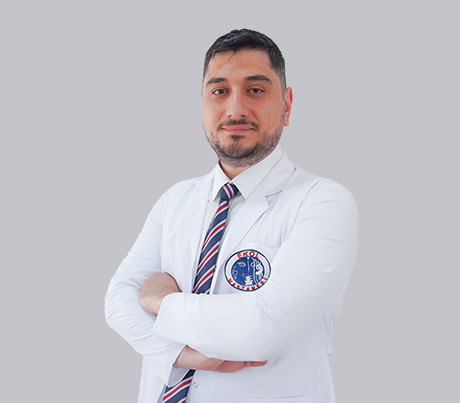Thyroid cancer starts in the thyroid gland and can be defined as the growth of thyroid cells into abnormal cells. The thyroid glands are a small system of glands in the lower neck that produce hormones to manage the body's metabolism.
Thyroid cancer usually does not initially show symptoms but can be diagnosed when a lump is noticed in the neck. However, some patients may also experience symptoms such as difficulty swallowing, hoarseness, sore throat or shortness of breath.
The lethality of thyroid cancer can vary depending on the type and stage. When detected early, the chances of cure are high and many patients make a full recovery.
Thyroid cancer is a type of cancer that originates in the thyroid gland, a butterfly-shaped gland located at the base of the neck just below the Adam's apple. This gland is crucial for regulating the body's metabolism through the production of thyroid hormones. Thyroid cancer is relatively uncommon, but its incidence has been increasing globally.
It typically presents with a lump or nodule in the thyroid region, and may be associated with changes in voice, difficulty swallowing, or neck pain. Diagnosis often involves a combination of physical examination, blood tests, imaging studies like ultrasound, and sometimes a biopsy.
The majority of thyroid cancers are highly treatable and often curable, especially when detected early. Treatment options include surgery, radioactive iodine treatment, thyroid hormone therapy, radiation therapy, and in some cases, chemotherapy. Regular monitoring is essential to manage and prevent potential recurrence.
The symptoms of thyroid cancer can vary depending on the individual and the stage of the cancer. However, some common symptoms include:
It's important to note that these symptoms can also be caused by other, less serious conditions. Many thyroid nodules, for example, are not cancerous. If you experience any of these symptoms, especially if they persist or worsen over time, it's important to consult with a healthcare professional for an accurate diagnosis. Early detection of thyroid cancer often leads to more effective treatment.
Yes, thyroid cancer is often curable, especially when it is diagnosed early. The curability of thyroid cancer depends on several factors, including the type and stage of the cancer, the patient's age, and overall health. Here are some key points to consider:
It's always important for individuals diagnosed with thyroid cancer to discuss their specific case, treatment options, and prognosis with their healthcare provider to understand their individual situation.
Several risk factors are associated with an increased likelihood of developing thyroid cancer. Understanding these risk factors can help in identifying individuals who may be at higher risk and might benefit from more vigilant monitoring. The main risk factors include:
It's important to note that having one or more of these risk factors does not mean that a person will definitely develop thyroid cancer. Many people with one or more risk factors never develop the disease, while others who develop thyroid cancer may have no known risk factors. Regular medical checkups and discussing any concerns with a healthcare provider can help in early detection and treatment, if necessary.
The treatment options for thyroid cancer depend on the type and stage of the cancer, as well as the patient's overall health and preferences. Here are the most common treatment methods:
The choice of treatment is highly individual and depends on many factors. It's important for patients to discuss the risks and benefits of each treatment option with their healthcare provider to determine the best course of action for their specific situation. Regular follow-up care is crucial to monitor for cancer recurrence or potential side effects of treatments.
 Date of birth
10.11.1987
Education and Expertise
Karadeniz Technical University Faculty of Medicine
Kocatepe University
Ankara University Faculty of Medicine
Konya Health Sciences University
Professional Interests:
Obesity (fatness) surgery and metabolic surgery
Laparoscopic reflux surgery
Laparoscopic gallbladder surgeries
Gastric balloon application
ERCP, EMR, ESD (Advanced Endoscopic procedures)
Laparoscopic pancreatic cancer surgery
Laparoscopic gastric and intestinal cancer surgeries
Hemorrhoid surgeries
Perianal fistula surgeries
Laparoscopic abdominal and inguinal hernia surgeries
Oncoplastic Breast cancer surgeries
Natural cancer surgery (NOSE)
Thyroid cancer and goiter surgeries.
Memberships to Scientific Organizations
Turkish Surgery Association
Turkish Obesity Surgery Association
Surgical Oncology Association
National Society of Endoscopic Laparoscopic Surgery
He is a member of the Bariatric and Metabolic Surgery Association.
Courses and Certificates:
Turkish surgical association proficiency exam (Board) certificate of achievement in 2018
He has more than 100 papers presented in national and international congresses and more than 50 articles published in international journals.
Foreign language
English
Date of birth
10.11.1987
Education and Expertise
Karadeniz Technical University Faculty of Medicine
Kocatepe University
Ankara University Faculty of Medicine
Konya Health Sciences University
Professional Interests:
Obesity (fatness) surgery and metabolic surgery
Laparoscopic reflux surgery
Laparoscopic gallbladder surgeries
Gastric balloon application
ERCP, EMR, ESD (Advanced Endoscopic procedures)
Laparoscopic pancreatic cancer surgery
Laparoscopic gastric and intestinal cancer surgeries
Hemorrhoid surgeries
Perianal fistula surgeries
Laparoscopic abdominal and inguinal hernia surgeries
Oncoplastic Breast cancer surgeries
Natural cancer surgery (NOSE)
Thyroid cancer and goiter surgeries.
Memberships to Scientific Organizations
Turkish Surgery Association
Turkish Obesity Surgery Association
Surgical Oncology Association
National Society of Endoscopic Laparoscopic Surgery
He is a member of the Bariatric and Metabolic Surgery Association.
Courses and Certificates:
Turkish surgical association proficiency exam (Board) certificate of achievement in 2018
He has more than 100 papers presented in national and international congresses and more than 50 articles published in international journals.
Foreign language
English